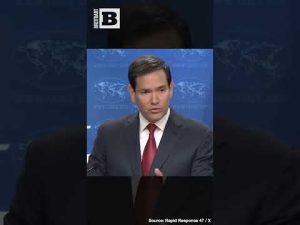**Four Years Later: Reflections on January 6 and the Quest for Truth**
January 6, 2021, is a day that many Americans remember as a turning point—a day that saw the U.S. Capitol breached and chaos unfolding in the heart of democracy. As four years have passed since that fateful event, Americans find themselves reflecting not only on the events of that day but also on the impact those events have had on trust in government institutions. Whispers of discontent grow louder, as new revelations emerge that shed light on what really transpired and raise eyebrows about the actions, or lack thereof, taken by federal agencies.
From the very beginning, Americans were led to believe that two pipe bombs discovered near the Republican and Democratic National Committees posed an imminent threat—a threat capable of causing catastrophic damage. In the wake of those bomb discoveries, it appears that vital information may have inconsistently disappeared. Records from the Secret Service regarding the sudden relocation of the Vice President have seemingly gone up in smoke, with no explanation in sight. This begs the question: Did federal agencies truly conduct a thorough investigation, or was it conveniently swept under the rug? Surveillance footage was overlooked at a critical moment, and the cell phone data that could have provided answers was allegedly “corrupted.” However, reports from cell phone companies suggest that this data was never even requested by the FBI.
As startling details emerge, the narrative surrounding January 6 begins to swirl with questions. With the revelation that 26 FBI informants were present that day, the lines between organic protest and orchestrated chaos blur. Were they attempting to monitor behaviors or were they acting as provocateurs? The mere presence of federal informants invites a host of unsettling inquiries. If federal agencies had such a strong presence, why did the situation spiral into chaos at all?
In the aftermath of January 6, there is a yearning among citizens for accountability and clarity. Many still languish in jail, facing severe penalties, while new evidence suggests that crucial opportunities to prevent the violence may have been overlooked. Just two days prior to the chaos, former President Trump had taken proactive steps by authorizing the deployment of National Guard units due to concerns over unruliness. Shockingly, this offer was rebuffed by leaders on Capitol Hill. A single phone call may have changed the course of that day—so why was it ignored? Investigative efforts now position the day’s turmoil not just as a result of a single man’s actions, but as symptomatic of a deeper, systemic failure among our institutions.
The tragic death of Air Force veteran Ashli Babbitt adds another somber layer to the conversation. Shot while attempting to enter the Capitol, her life was deemed collateral damage in a political struggle. Now that new findings reveal noticeable misconduct on the part of the responding officer, why has this story not garnered the same attention and scrutiny as other high-profile cases? The consensus seems to be that her life, much like others caught in the throes of January 6, was overshadowed by a political narrative that sought to mold public perception.
As these revelations continue to unfold, it is essential for every American—regardless of political affiliation—to demand the truth. January 6 served not only as a stark reminder of our divisions but also as a call to action against the convoluted mechanics of power that may have played a role in manufacturing chaos. The time for blind trust has passed, and the demand for accountability is louder than ever. Are we merely passive spectators in our democracy, or do we rise to reclaim the narrative of our own history? The future of trust in our institutions may hinge on our willingness to confront these uncomfortable truths.
As the dust settles on four tumultuous years, we must remember that the fight for truth is not just about January 6, but about ensuring our democracy serves the people and remains transparent. It is time to put our value in justice, not just among the left or right, but as a unified front that insists accountability be the new standard—because democracy only thrives when it is nourished by the truth.







